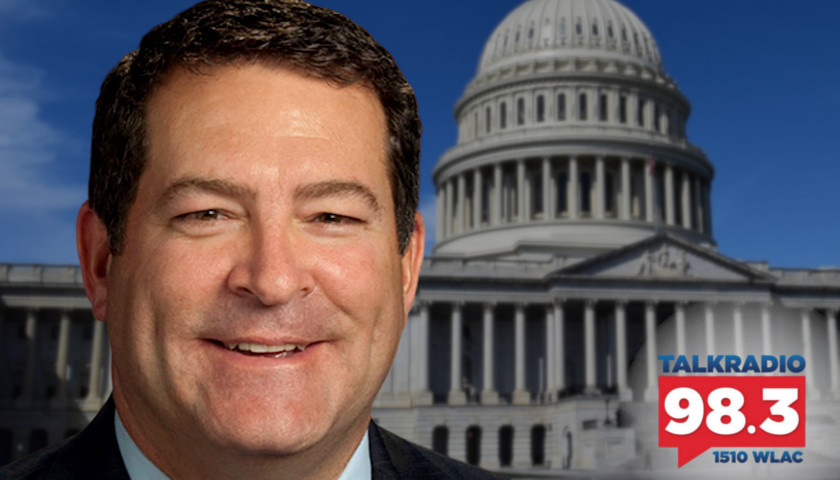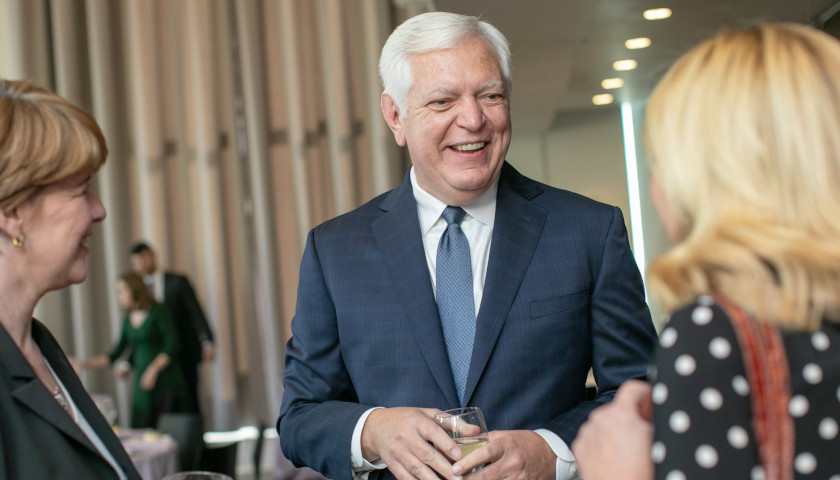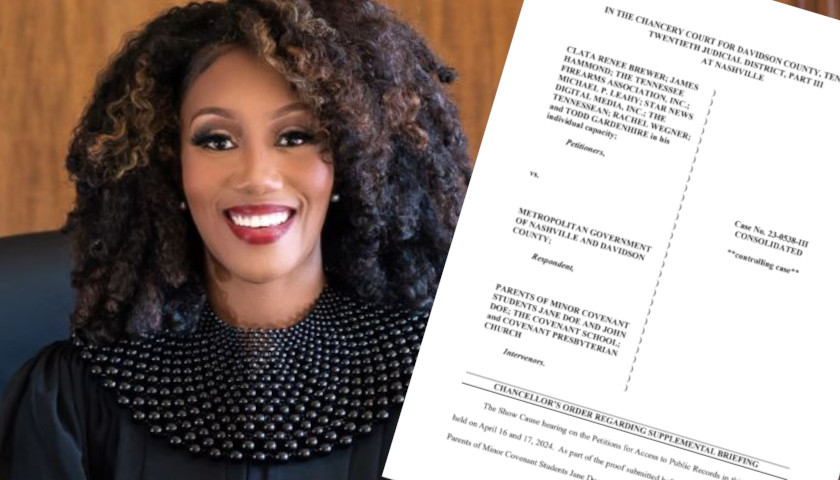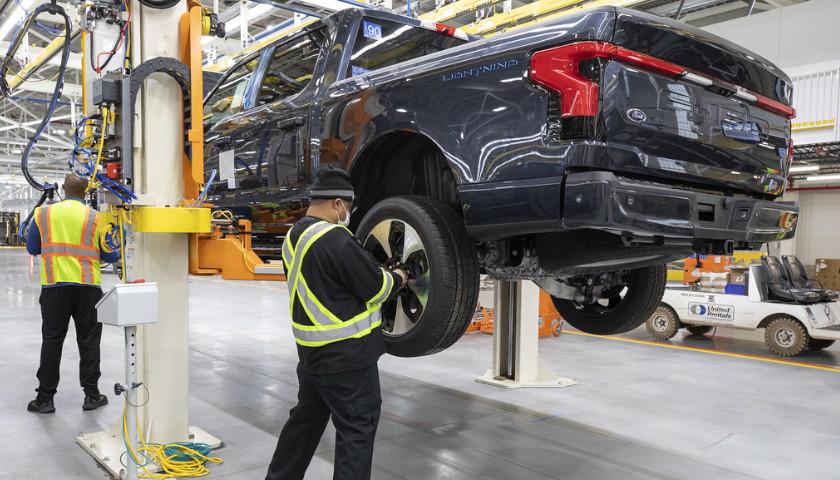Live from Music Row Friday morning on The Tennessee Star Report with Michael Patrick Leahy – broadcast on Nashville’s Talk Radio 98.3 and 1510 WLAC weekdays from 5:00 a.m. to 8:00 a.m. – host Leahy welcomed U.S. Rep. Mark Green (R-TN-07) to the newsmaker line to explain the details and mechanics of his Nearshoring Act that would create a win-win situation by decoupling manufacturing from China and bringing it to Latin America.
Leahy: We are joined on the newsmaker line right now by Congressman Mark Green, who represents the 7th Congressional District in Tennessee.
He’s a Republican. It’s right now the minority party but might change soon. Good morning, Congressman Green.
Green: Hey, brother, thanks for having you on.
Leahy: Well, we’re always delighted to have you on. Crom Carmichael is here in studio as well.
Green: Hey Crom.
Leahy: What’s the good news that you’re working on today, Congressman Green?
Green: We’ve got a bill that I dropped this week. We’ve been working on this bill for a little over a year. And when I was in the state Senate, I kind of resolved, we’re going to get this hall income tax repealed.
I wanted to walk away from being in the state Senate and say this is what I contributed, you know. And I try to do that everywhere I go.
But in Congress looking for that sort of iconic big difference thing so I can walk away from being a congressman and say I had a positive impact.
I think this Western Hemisphere Nearshoring Act can be that. Before I go into that, though, I will say that I wrote a bill to try to bring manufacturing back to the United States.
That bill is separate. It doesn’t really impact this because we’re talking about two different groups of businesses in manufacturing. But what the Nearshoring Act does is it uses Chinese tariff money to buy down loan rates from private investors to businesses that qualify.
There are some criteria for these companies that are manufacturing in China, and it gives them a low-interest loan to move to Latin America.
And what that does is it decouples us from China and the manufacturing there and it creates some opportunity in Latin America and hopefully decreases pressure on our Southern border.
So it’s a win-win-win, and it addresses the manufacturing, based on the cost of labor, et cetera, can’t necessarily move back to the United States.
Leahy: What are the prospects of the passage of that bill?
Green: They’re pretty high. I’ve had multiple Democrats ask me if they could take the bill over, and that’s a sign that says they like the bill, too.
And they’ve actually been involved in the process of writing the bill. I let Democrats take a look at it and be involved in some of the meetings. When you’re in the minority, you have to think out of the box to get solutions that, for me, always conform to conservative principles.
So we’re not using taxpayer dollars. I think Democrats would probably prefer to stick a bunch of taxpayer money in there, but we’re not going to do that.
But they’re all about creating opportunities to address the immigration issue. So from their standpoint, that’s the plus there for me. Let’s decouple from China and decrease pressure on our Southern border, and it works.
A very powerful Democrat, Congressman Espaillat, who was actually born in the Dominican Republic, is very much for the bill. So I’m going to drop it under my name.
And if they ultimately say okay, to get it passed, we have to change it to a Democrat, which is about the only way for it to pass. I’ll be okay with that because for me, it’s about making a difference, it’s not about having my name on a bill.
Carmichael: Congressman, let me ask you a question because when I look back at the infrastructure, the so-called infrastructure bill that was passed turned out to be about 10 or 15 percent infrastructure and the rest of it was special interest boondoggle stuff.
But even the infrastructure bill required that all the money that is spent be spent with the prevailing wages, which are Union wages, which really help the Union shops. If you let Democrats take over this bill, you’re going to have control of the ledger.
You’re going to be in the majority in less than a year. What keeps the Democrats from taking over your very good bill and sticking stuff in there that is pro-Union?
Because everything that they have done since Biden has been present, every single piece of legislation that they have passed, I don’t care what it is or even that they’ve offered within the legislation, it forces people into unions.
What would keep the Democrats from taking your good bill and turning it into a bad bill and then saying, well, Mark Green loves this bill because he’s the one that wrote it. But actually, you didn’t.
Green: Yes, I have voted against bills that I sponsored. If they change it to a point where I can’t support it, then I’m off. And I have done that within the last two weeks.
There was a dental bill, and they added some stuff to the bill that was to me just unacceptable. So I wound up voting no on a bill that I had been originally a sponsor on.
So they can amend any bill they want. They can turn around and steal the bill and just write their own. So that possibility you’re describing can happen regardless of whether or not I dropped a good idea.
So what we’ll do is fight that out in committee. And as long as it’s with my name in the lead, I can always pull the bill, and then I can always vote no if they change it in a way. And we’ve negotiated this stuff in the process. Look, I’m not giving.
One of the parts of the bill is in Latin America, there are infrastructure issues. And when a manufacturing company comes, they need a guarantee of power. So I have written into the bill that we can allow the thorium salt reactors, the small room size reactors, clean energy number one.
They like that. And number two, they’re made in Tennessee. So there are a bunch of wins there. They wanted to take it off. They’re anti-nuclear even though it’s clean.
But I said, no, we’re not going to do that and we’re keeping it on. So they were like, okay, well, that’s fine. Will you change the word? I think they didn’t like illegal immigration, so we changed it.
I’ll change it to immigration that violates the laws of the United States. Are you okay with that? We’re okay with that. I’m like okay.
Well, I’m fine with that too. It accomplishes what it needs to. So that kind of stuff has already happened on this bill and I’m hopeful that it will ride like it is.
Listen to the interview:
– – –
Tune in weekdays from 5:00 – 8:00 a.m. to The Tennessee Star Report with Michael Patrick Leahy on Talk Radio 98.3 FM WLAC 1510. Listen online at iHeart Radio.








